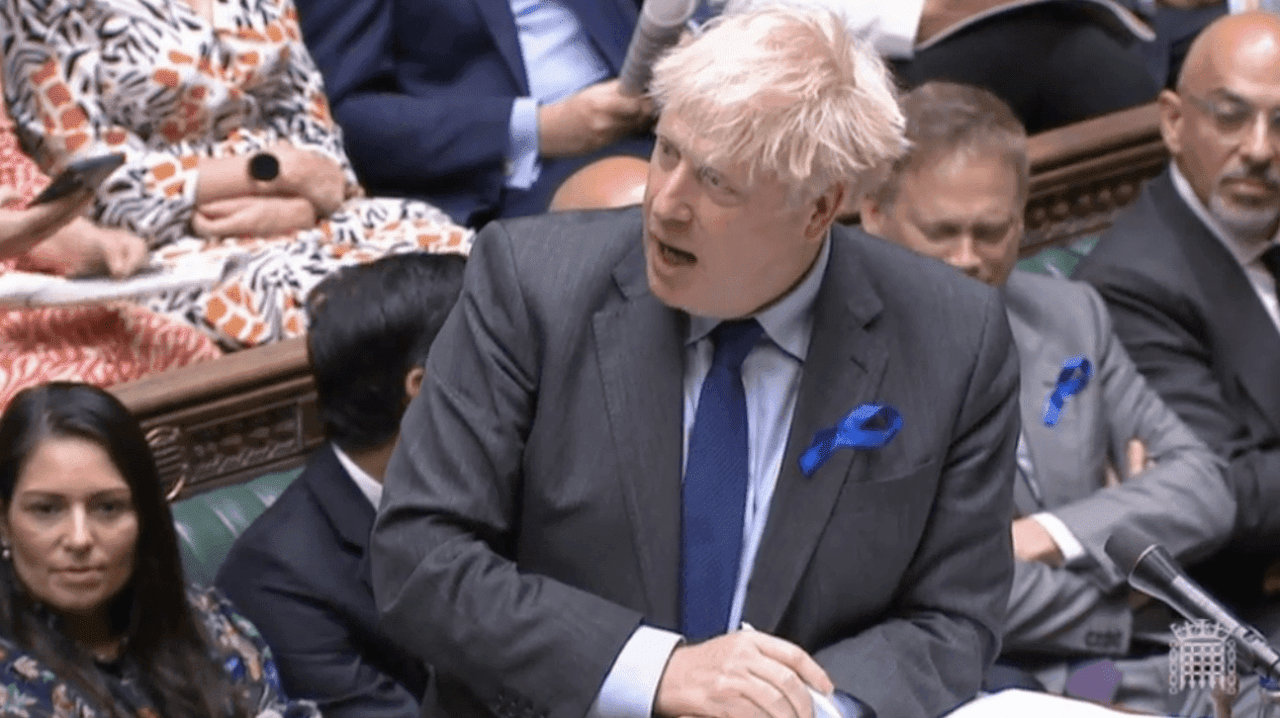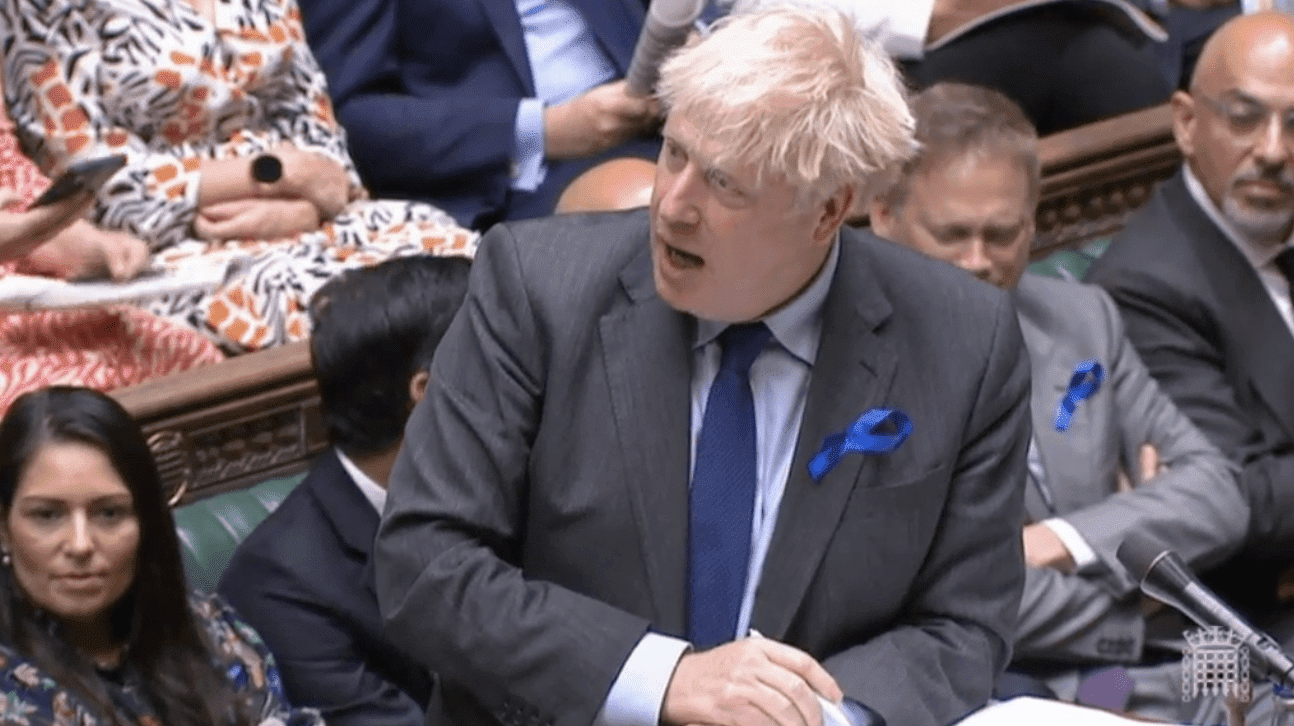Boris Johnson and Keir Starmer both came to Prime Minister’s Questions today wanting to talk about the rail strikes. The Tory leader was keen to pin the blame on Labour, pointing out that 25 MPs from that party joined RMT picket lines yesterday. Starmer meanwhile thinks, as I explained here, that he can be bullish on this too because the public are blaming the government.
The Labour leader asked whether Johnson was ‘genuine about preventing strikes’, calling for details of meetings he or Transport Secretary Grant Shapps had held with ‘rail workers’ (a way of avoiding saying ‘unions’) this week. Johnson’s line was that the Conservatives were the party of the ‘strivers’ rather than the strikers and that ‘we know why he won’t condemn the strikes’ – that Labour needed the unions’ money. ‘That’s the fee that the learned gentleman opposite is receiving for the case he is failing to make,’ he said, in reference to Starmer’s legal career.
Johnson had much to be uncomfortable about today
Starmer moved from the rail strikes to the contradiction of public sector pay restraint against plans to remove the bankers’ bonus cap:
‘Pay rises for city bankers, pay cuts for district nurses. That’s the new approach. Mr Speaker, I didn’t see that on any leaflets in Wakefield.’
It was a good line and will become harder for Johnson to defend himself against in the coming months. But it is also true that Starmer is struggling to make his case at the moment. He still lacks the oomph that Angela Rayner recently said he needed to put into his interventions. He may well have reasons to be confident that the rail strikes aren’t hurting Labour in the way the Conservatives hope. But he does have an authority issue in that a section of his party defied his very clear order not to join picket lines, which allowed Johnson to give this pay-off to his final answer:
‘They’re out on the picket lines, literally holding hands with Arthur Scargill. It’s worse than under Jeremy Corbyn. This is a government that is taking this country forward. They would take it back to the 1970s.’
Though it is worth pointing out that if the current Cabinet has few members who can remember the 1970s, figures like Scargill – a big beast in the long ago days of the 1980s and himself aged 84 – may not have the hold over the wider public consciousness in the way Johnson hopes.
What Johnson didn’t want to talk about was the question – raised first by Labour MP Chris Elmore and then recalled by Starmer – about whether he ever considered getting his wife Carrie a job in government or a post with the royal household. Elmore urged him to be honest, and Johnson’s response was to accuse the Opposition of not wanting to talk about the economy. He also dodged the questions on the bankers’ bonus cap.
Johnson had much to be uncomfortable about today, whether on his own conduct or the lack of joined-up thinking in his top team. Starmer didn’t demolish him, but the Labour leader will have been relieved that this was a much better performance than the past few weeks at PMQs.








Comments